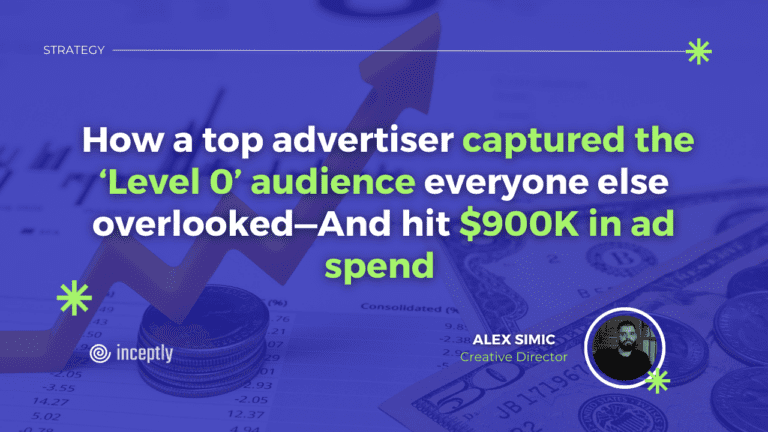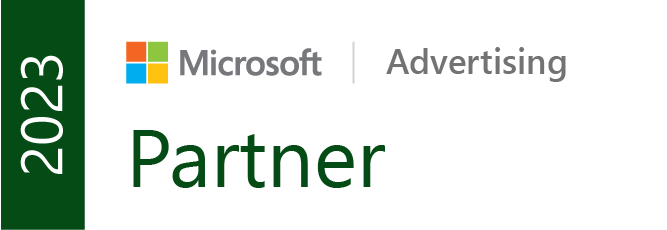
How to capture that audience that’s not yet there, that’s almost willing to convert but has not stepped over the finish line? And more importantly, how to address them, or even, who are they? What audience is that overlooked group that you’ve constantly been missing out on addressing?
If you are not sure how to do something well, always take a look at how the best of us do it. A very simple sentence, and a very straightforward suggestion we always overlook. But that’s ok, and that’s why I’m here to serve as a reminder once again. We’re gonna be talking about a well-known advertiser for anyone who’s ever opened VidTao, Stephen Ridley. And honestly, going into watching his newest ad, I didn’t expect him to cover what was always my biggest ‘concern’ when his ads are concerned.
Sure, he’s super successful, but I was always wondering – he’s making it seem super simple to play the piano, but it’s almost as if, for an experienced piano player (like myself) it’s making it too simple. That being said, his audience is definitely people who are playing the piano, but have a bit less experience. Sure, they are a big group, but what about all of those undecided people who would love to play it? Even this looks overwhelming.
Want to brainstorm with our team on new ways to scale your business with YouTube Ads (and other performance video platforms)?
Join us for a free YouTube ad brainstorming session👇
If somebody told me to learn how to play 100 songs with just 4 chords on the guitar, sure, I’d be interested, but I’d still feel uncertain if I can really do it, even if it’s that simple, or when I do it, what will be the next thing for my guitar learning journey.
But, Stephen has finally addressed the ‘Level 0’ audience, and let’s see how that went (obviously good since we’re writing about it 😀, but yeah, let’s get into a bit more detail now).
Listening to your audience can unlock entirely new segments of the market, even when you think you’ve ‘reached out’ to everyone. If you’re running ads that are already successful, you should never stop testing different angles and refining your approach. There’s always an audience segment waiting to be captured – you just need to know how to speak their language.
1. The power of addressing the unspoken fear
Right from the start, Ridley tackles what many potential piano students are afraid to even admit: their hands feel “clumsy and fumbly.” This isn’t just clever marketing – it’s addressing the elephant in the room that keeps many potential students from even trying. By acknowledging this fundamental fear, he immediately captures the attention of those who’ve been watching from the sidelines, too intimidated to start.
2. Making the impossible seem possible
Unlike his previous ads that focused on quick wins and impressive results, this ad presents something more fundamental: a solution to the very thing that keeps people from believing they could ever play. The book of hand exercises becomes more than just a lead magnet – it’s a bridge between “I could never” and “maybe I could.”
3. The perfect entry point
By offering a free book of exercises combined with a live event, Ridley creates an irresistible low-barrier entry point. This is particularly clever because it allows the “Level 0” audience – those who’ve never touched a piano – to feel like they’re starting at the absolute beginning. No assumptions, no prerequisites, just pure fundamentals.
4. The tangible solution approach
Unlike his previous ads that offered broader promises, this ad presents a concrete solution: a book of hand and finger exercises. What’s brilliant here is how Ridley demonstrates the exercises on camera, showing rather than just telling. This immediate demonstration of value is a crucial element in direct-response advertising, as it helps viewers visualize their own success. He’s literally turning the pages of the book they’ll get, so it’s taking the demonstration to another level.
Similarly to the previous ads, he’s repeating some elements of his proven winning ads. This makes perfect sense – he’s experimenting with different messaging angles, but why change some of the winning techniques?
The mobile-first vertical format shows Ridley’s understanding of where his audience consumes content. His specific time commitments (“1 minute per hand, three times a day for 4 weeks”) build trust through transparency.
The dynamic camera work, getting up close to show hand movements, makes the technical aspects feel more accessible. And by tying the offer to a ‘book launch event’, he creates natural urgency without resorting to artificial scarcity.
These elements, combined with his engaging personality and high production values, create a complete package that does the job well and is a group of variables that shouldn’t be tampered with while exploring new lanes and experimenting, just like he’s done in the existing ad.
The evolution of understanding your audience
What’s fascinating about this pivot is how it demonstrates the importance of looking beyond your current success. While Ridley’s previous ads were clearly working well with beginners who already believed they could learn piano, this new approach opens the door to an entirely new segment: the pre-beginners, the dreamers, the ones who never thought they could. And therefore, they needed extra reassurance. Again, this evolution in messaging shows a deep understanding of his audience – Instead of just speaking to those who are ready to learn piano, Ridley has identified and addressed those who want to learn but don’t believe they can.
What makes this ad different when we look beyond the messaging angle?
The key difference lies in its focus on capability rather than achievement. Previous ads promised quick results (“learn 100 songs with 4 chords”), but this one promises something more fundamental: the ability to actually play. It addresses the “But can I really do this?” question that stops many potential students before they start. In other words, it’s a more long-term approach and not something to overlook. Arguably, this could help not just the Level 0’s, but a slightly more advanced audience too – maybe they’ll learn something that they had missed along the way.
What makes this ad particularly fascinating isn’t just its success – it’s what it represents in the broader context of direct-response advertising. Here’s an advertiser who, despite having winning ads and a proven formula, chose to dig deeper and address an entirely new segment of his market. It’s a reminder that success in advertising isn’t just about finding what works and scaling it – it’s about constantly questioning who else you could be reaching and how you could be reaching them better.
Ridley’s pivot from “Here’s how easy it is to play piano” to “Let’s address why you think you can’t play piano” is a masterclass in audience understanding. It shows that sometimes the biggest opportunities lie not in reaching more of your current audience, but in speaking to those who’ve been watching from the sidelines, held back by fears or doubts you haven’t yet addressed.
For direct response advertisers across all industries, this case study offers a valuable lesson: your next big scaling opportunity might not come from optimizing your current message, but from fundamentally rethinking who you’re speaking to and what’s holding them back. Sometimes, the best way forward is to take a step back and listen to the quiet voices in your market – they might just lead you to your next breakthrough.
Want to brainstorm with our team on new ways to scale your business with YouTube Ads (and other performance video platforms)?
Join us for a free YouTube ad brainstorming session👇
Want more content like this?
Don’t miss out on the latest news and updates from the world of Direct Response advertising! Subscribe to our newsletter today 👇

Alex Simic, Creative Director
Alex Simic is the person responsible for all creative work that stands behind Inceptly since stepping into his role in 2022. He comes from the role of the Media Buying Team Lead and Strategist behind some of Inceptly’s biggest successes. He has collaborated with the biggest names in the Direct Response industry, whether as a Senior Account Manager & Media Buyer or Creative Director. His main goal is bridging the gap between Media Buying and Creative, ensuring that the videos Inceptly produces are data-based and giving our clients the best chance at achieving success.
Like this post? Let's continue the conversation!
Get in touch with us by shooting us a quick email or tagging us on LinkedIn or Instagram, and sharing your thoughts. Your feedback helps us keep our blog relevant and interesting.
Get Our Newsletter
Need Help?
Get in touch with us for an insightful evaluation of your ads + actionable tips to help amp up your direct response revenue








